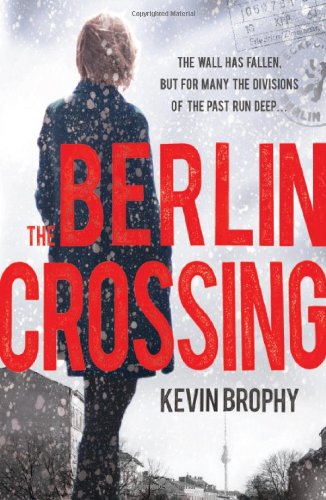The Berlin Crossing
In Brandenburg, in 1993, the deathbed urging of his mother spurs out-of-work teacher Michael Ritter to go in search of Pastor Bruck, who holds the secret to his mother’s past and his own identity. He unearths a tale of espionage and forbidden love in 1962, on either side of the Berlin Wall.
The first great premise of this novel is that its hero is a committed socialist, disillusioned by the capitalisation of East Germany after the fall of the Wall. By shining his light from this angle, Brophy immediately gives us something a little unexpected, at odds with the preconceptions about the divided Germany that we have from writers like John Le Carré. Capitalism has stripped Michael of his job and his identity, and he is not the kind of man, still stubbornly driving his old Trabant, for whom consumerism will provide any consolation.
Sadly, apart from this unexpected viewpoint, everything else about the novel is pedestrian and predictable. Once the lovers at the centre of the story – the East German cartographer and the Irishman tricked into spying for the English – meet, things progress exactly as the reader anticipates, so much so I found myself in the grip of a certain incredulity, pleading with the author to give me a twist, something to make me fall flat on my face as I raced ahead of him to the end of the story.
While the writing is competent, it is marred by some very sloppy editing, giving the novel an amateurish feel. It’s an easy read, though, and if you want something undemanding for a long weekend in Berlin, you could probably do worse. Though you could certainly do better as well.










